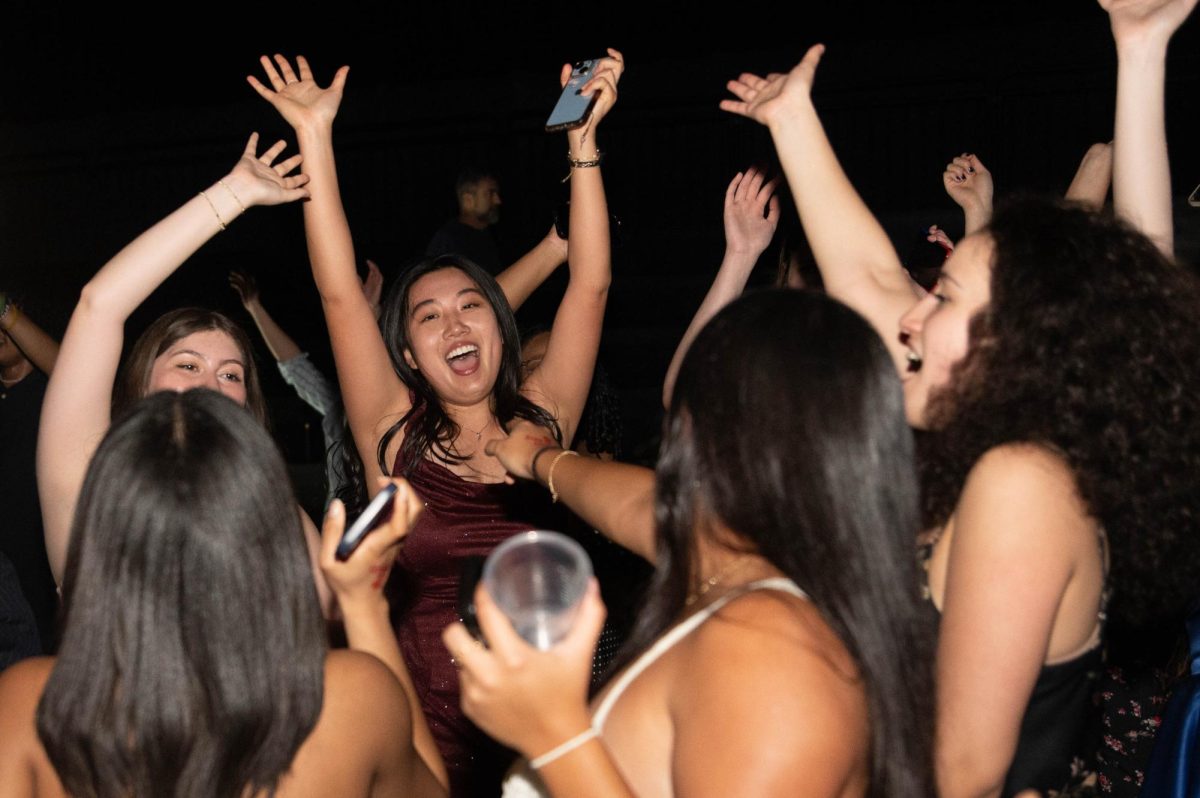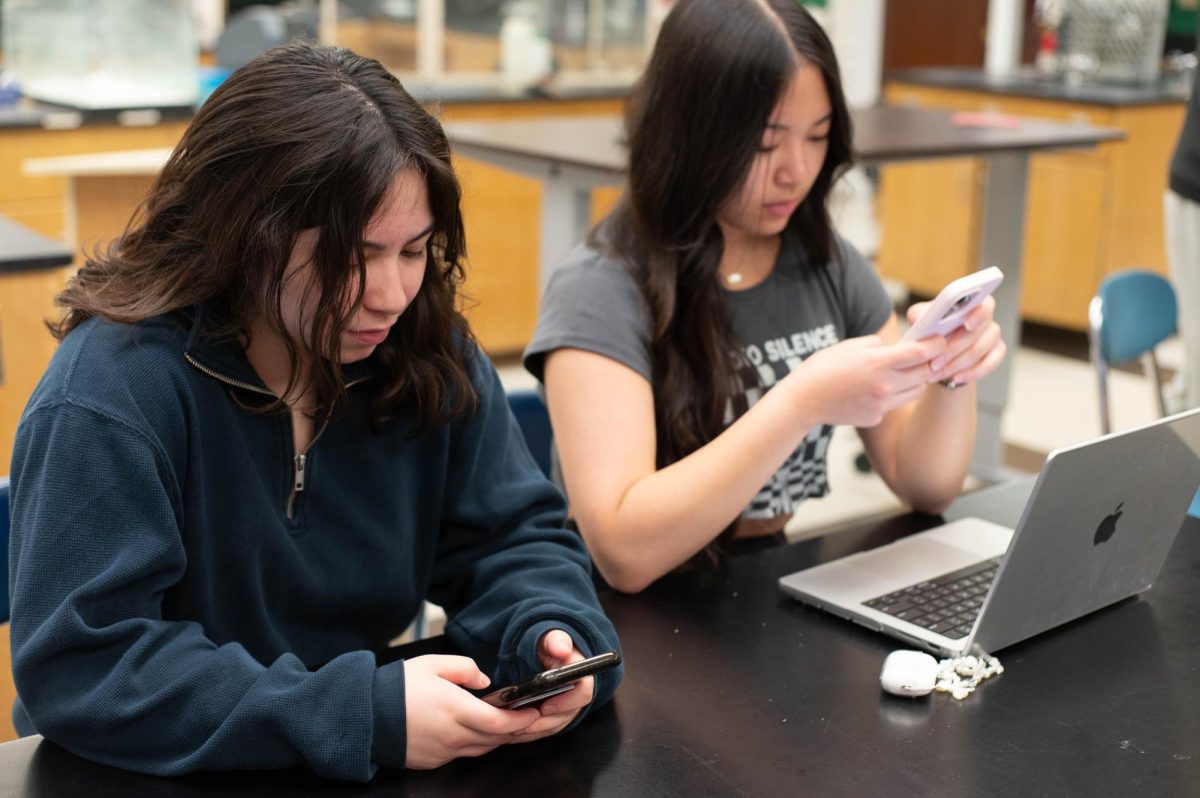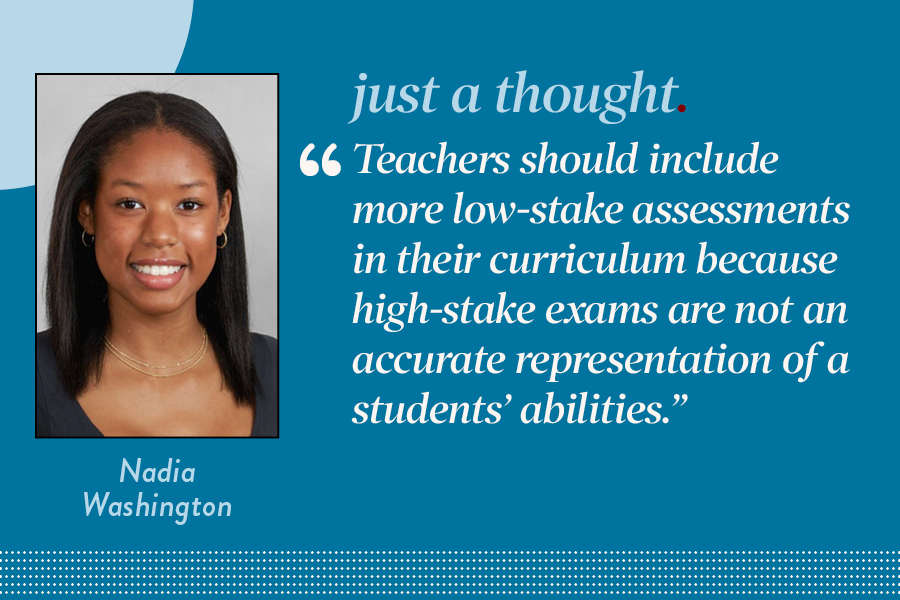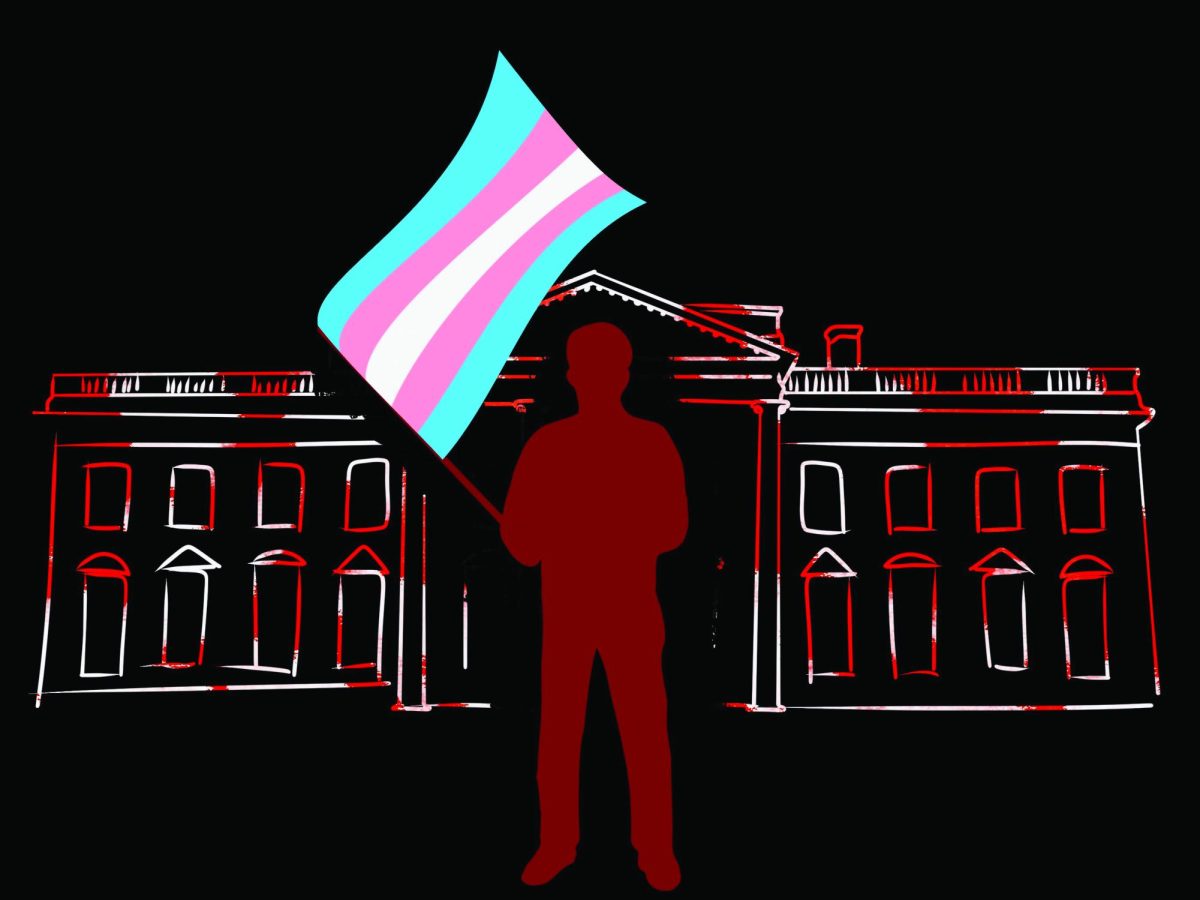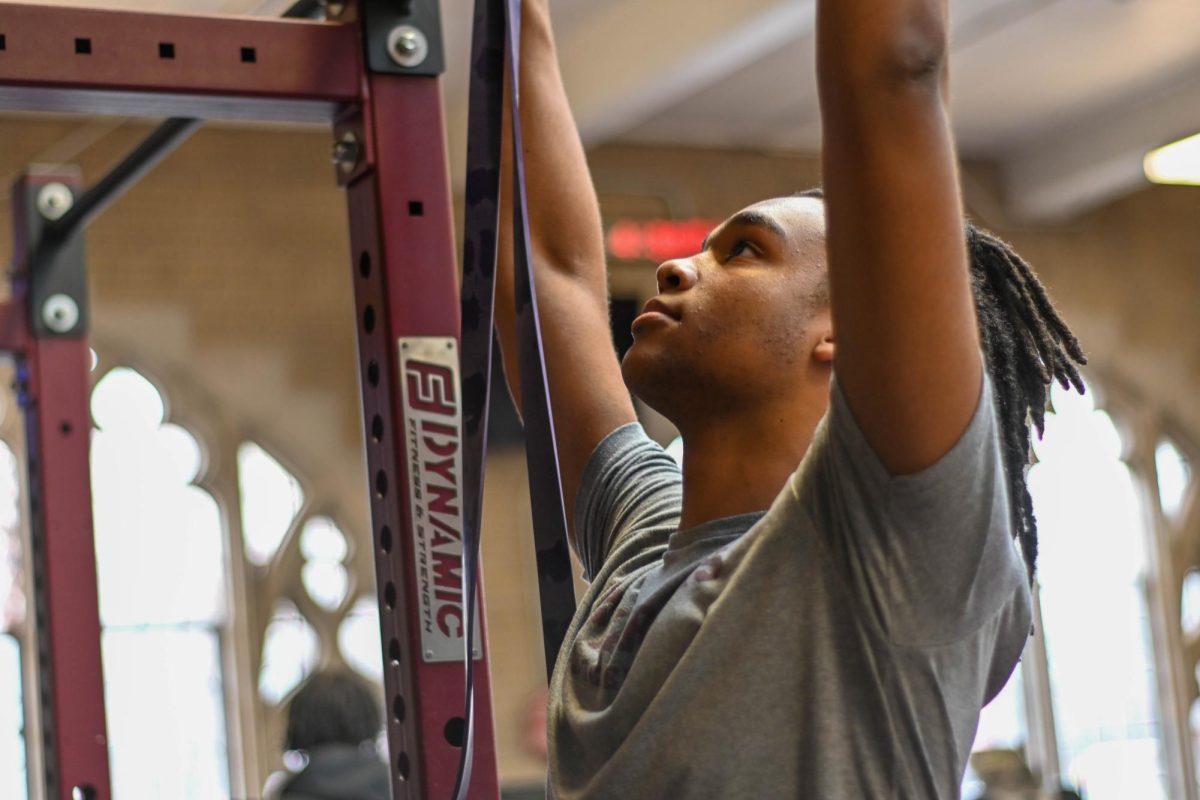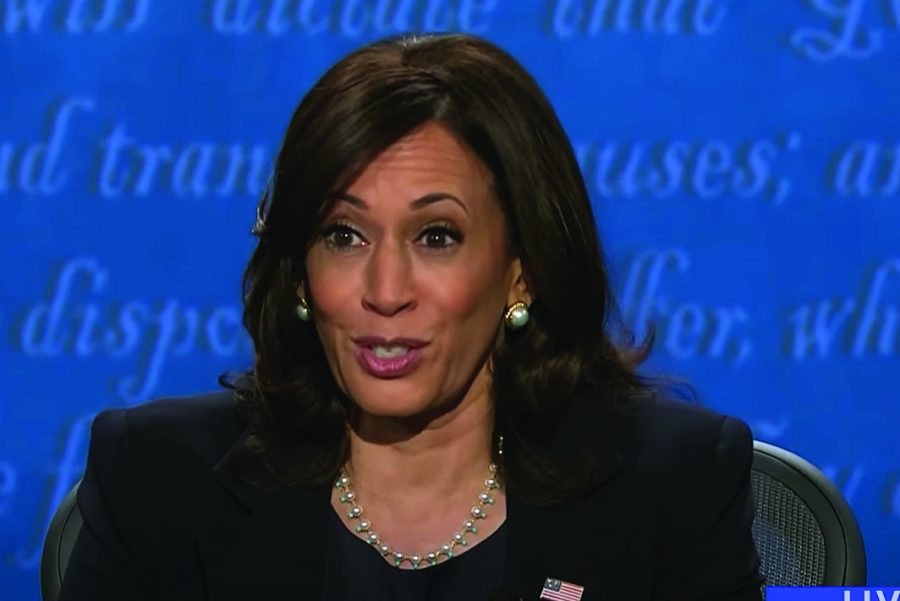As trailblazer for multiple identities, Harris inspires students
Screengrab from Vice Presidential debate
Ms. Harris is the first woman of color to be nominated for a national office by a major party.
November 3, 2020
As a half Black, half Indian American woman, Kamala Harris has already made history as the 2020 Democratic vice presidential nominee. She is the first woman of color to run to be nominated for national office by a major party. Ms. Harris, a U.S. Senator from California, is running alongside former Vice President Joe Biden.
The identities Ms. Harris represents, her perspective she brings to politics and the path she is creating for other women of color have been important for many Americans, including U-High students.
Sophomore Camille Bryant, who identifies as Black, appreciates the representation that comes with Ms. Harris being in such a high-profile position.
“Growing up, everyone I’ve seen who has been in this position, and just in a position in the government, most of them have been predominantly white men,” Camille said. “So finally seeing not only a woman, but also a woman of color in this position is kind of getting the ball rolling to try to achieve representation in positions like this one.”
Senior Sana Shahul, who identifies as Indian American, also believes that representation will lead to more women of color in governmental roles.
“It’s a very big deal I think for this country. I think that representation is where it all begins,” Sana said. “To see that you have a place, and that this country values you and your opinions is incredibly important.”
Sophomore Anika Gupta, who is also Indian American, echoes Sana’s feelings about Ms. Harris opening doors for other women.
“If you just see one type of person in a leadership role, you only ever think that that type of person is fit to be in that role. And then the system never changes,” Anika said. “But if you see one person, and all it really takes is a couple of people, and then more people will be motivated to take up such roles.”
Senior Destiney Williamson, who identifies as Black, said Ms. Harris is also getting a lot of support from people of color as someone who graduated from a historically Black college, Howard University.
“I know that a lot of Black students in college right now are definitely looking at her as a role model,” Destiney said. “Howard especially is going crazy with appreciation.”
Senior Rithik Puri believes Ms. Harris will also bring new perspectives into government as a woman of color.
“A person who has been a part of a marginalized group has a very important perspective to bring to the table because they know what it’s like to not be in a place of power,” said Rithik, who identifies as Indian. “When they are actually able to get to a place of power, it’s not just that they will lift up the people that look like them, but they also are going to support other people who don’t look like them, because they know what it’s like to be disenfranchised because of how you look or how you identify.”
Priyanka Rupani, Lab’s director of diversity, equity and inclusion who identifies as South Asian American, thinks Ms. Harris’ intersectional identity makes her appealing to many supporters.
“For some people, she presents a mirror for them, like a reflection of their own identity that folks might have never had. She also represents a voice — being a black woman, being a South Asian woman, and representing a number of marginalized identities,” Ms. Rupani said. “I think it is a source of power and strength and resilience, she kind of just embodies, like, so many positive things.”
Additional reporting contributed by Louis Auxefans, Jack Hurst, Téa Tamburo and Sahana Unni.




